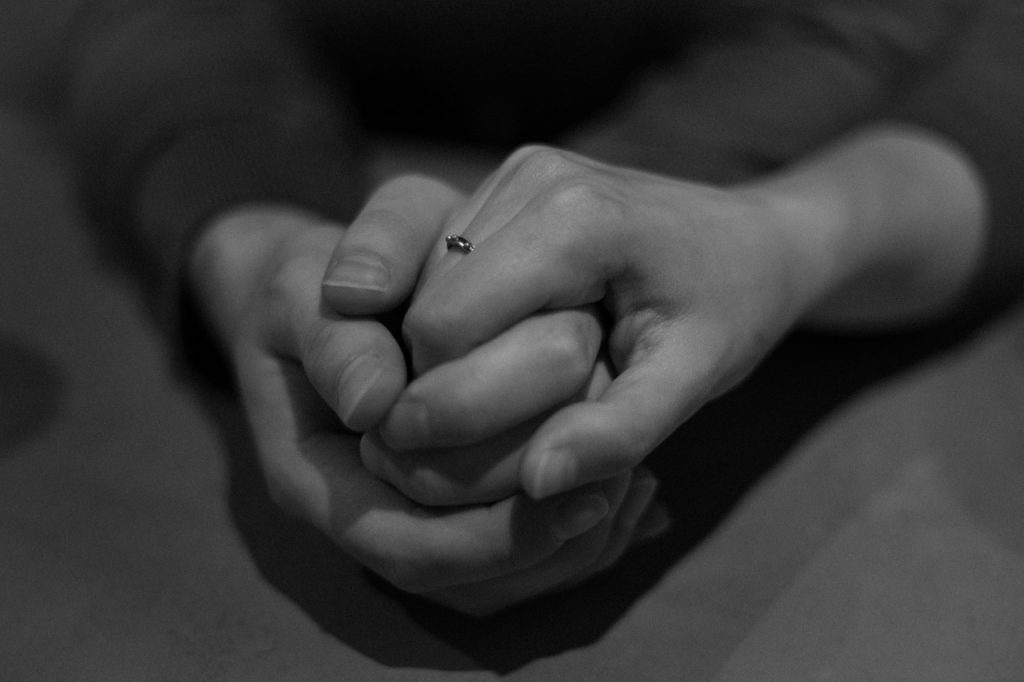“We want to be happy. Is it possible to be so in the present day world?”
This question was presented by the French youth to Pope St John Paul II on one of his pastoral visits to France. This question directly addresses the Pope’s concern expressed in so many of his writings and speeches. During his whole pontificate he has been insisting on highlighting the issues and struggles of our era. Yet, while he has been addressing the consequences of human weakness, he also has responded to the French youth’s question by assuring again and again that indeed we can be happy in this life, and that the source of this happiness is the recognition, realization and acceptance of human dignity.
Given the new perspectives opened up by scientific and technical progress and how large sections of public opinion justify certain actions against people or against life giving preference to individual freedom, the Pope wrote an encyclical letter called Evangelium Vitæ. The encyclical opens with the statement:
“Man is called to a fullness of life which goes far beyond the dimensions of his existence on earth, since it is participation in the very life of God. The depth of this supernatural vocation reveals the greatness and the price of human life, even in its temporal phase. ”
-EV, 2
The originality of these words comes from the theme outlined during the Pope’s trip to the United States in 1993: a contrast between a “culture of life” and a “culture of death”. For him, any violation of human dignity was “characterized by the preponderance of a culture contrary to solidarity, which is presented in many cases as a real culture of death.” (EV, 12)
It is essential for us as human beings to take care of ourselves, our health and well-being, it is important to live connected, to live in the world. Nonetheless, we live in a society heavily influenced by news, movies, social media and culture. We are constantly reminded that we have control of our lives, bodies and it’s our right to be happy. We can find endless videos on the internet or books on the shelfs of the libraries filled with methods, thoughts, ideas and currents to boost
your ego, personality and self-esteem. However, this kind of legitimation of individualism is being progressively proven by researchers unsufficient, disappointing and dissatisfactory due to its lack of wider perspective.
For example, let’s consider one of the world’s leading researchers in positive psychology, Mihaly Csikszentmihalyi and his concept of “the flow”. In an interview with Wired magazine, Csíkszentmihályi described flow as “being completely involved in an activity for its own sake. The ego falls away. Time flies. Every action, movement, and thought follows inevitably from the previous one, like playing jazz. Your whole being is involved, and you’re using your skills to the utmost.” (Geirland, John (1996). “Go With The Flow”. Wired magazine, September, Issue 4.09.) Csíkszentmihályi outlines in his theory that people are happiest when they are in a state of flow, a state of concentration or complete absorption with the activity at hand and the situation.
Positive psychology is a well known and globally accepted movement with American roots whose characteristics are self-fulfillment as the ultimate life goal, promotion of self-improvement via personal effort, and its narrow sense of the social. It promises people’s well-being and this connects with many people’s longings for solutions in times of significant social uncertainty, instability, and insecurity.
What an interesting contrast we got here.
The rise of individualism, the promotion of an “utilitarian conception of society”, the loss of the sense of God in contemporary secularized societies. According to St John Paul II, these are common factors in the current emotional state of the society: we are trying so hard to find happiness in sources that do not last for long, we try to give ourselves to relationships that empty us, if we are not satisfied with a situation we remove the problem, change live, change partner, quick fix, move on.
Today, more than ever, these words are resonating with our world: Wars of the powerful against the weak, refugees being rejected, mistreated at the borders and left to die in the sea, the rise of populisms promoting distrust and hatred, pregnant women filled with fear going to an abortion clinique, a selfish society treating with relativism and disdain a pandemia affecting in greater degree to our eldery, broken relationships and marriages, repressed emotions, everybody has an
opinion or something to say but nobody is willing to listen, harsh words, loneliness, isolation, sadness, …, unhappiness.
“I thirst”, this was the message that Mother Teresa received from Christ. The entire world thirsts for love and care, it thirsts for being seen and recognized, it thirsts for being received, embraced and accepted without limitations.
“And do not give the devil a foothold.” as Peter said to the Ephesians (4:27).
Sometimes we are faced with situations and circumstances where human dignity is questioned but fairly justified. Then we hear comments like: “it was her decision, her choice”, “it was a matter of time”, “it’s for a better good”, “he chose the lesser evil”. What it seems wrong, it is most likely wrong. Everything else are small negotiations with evil. I personally enjoy very much the way Geralt, the main character of the fantasy series The Witcher expresses this idea: “Evil is evil. Lesser, greater, middling, …, makes no difference. Proportions are negotiated, boundaries blurred […]. But if I’m to choose between one evil or another, I’d rather not choose at all.” (Andrzej Sapkowski: The Witcher, The Last Wish)
Do we want to be happy? Let start by doing a favour to someone, let’s find our call, let’s change focus from the self-centered point of view of our desires and let’s pay real attention to our environment, be truly present for people that have been weakened, harmed or suffering, for those whose human dignity is being questioned, denied and attacked day after day, for as Pope St John Paul II said, our happiness can only be in the very life of God by going beyond the limits of our inner self and cherishing life in the world through love and self-giving.
Skrevet av: Isabel Maria Guner Velasco
Bilde: Privat



